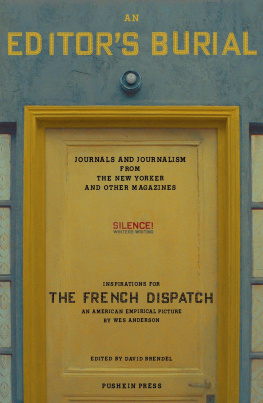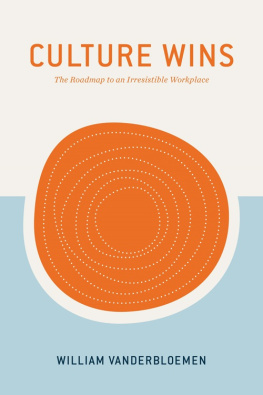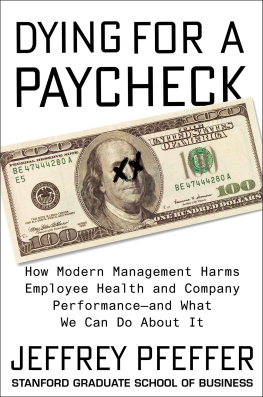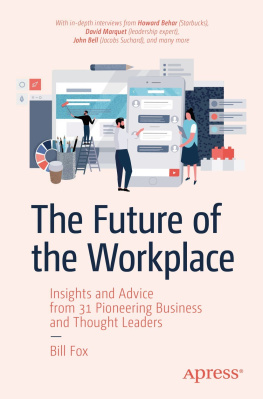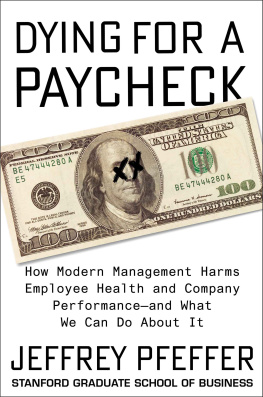Think Talk Create is a clarion yet compassionate critique of the ongoing dehumanization of work and workplaces, driven by prioritizing quantity over quality, metrics over ethics, and algorithms ber alles. Replete with illuminating case studies, this mind-opening book shows how to solve thorny business problems by engaging a companys most valuable assets: its employees and consumers. Every leader should read Think Talk Create and distribute copies to their team.
Lou Marinoff, PhD, author of Plato Not Prozac!
Think Talk Create is the marvelous process for reconnecting after the isolation weve experienced during the COVID-19 era, enabling us to reach out for the productive engagement and innovation we so sorely need as individuals, in our organizations, and in society. Its roots are ancient, but it is so up-to-the-moment through David Brendel and Ryan Stelzers pragmatic advice, cogent social commentary, fascinating science, and wonderful storytelling.
Sandra Sucher, Harvard Business School, coauthor of The Power of Trust
This is one of the very few business books youll come across thats both deep, practical, and inspired in a way that will spark new ideas for thinking and acting well. Theres a revolution growing where business, healthcare, politics, and the other professions are being understood as essentially humane endeavors meant to celebrate and deploy the best of our talents creatively into the world. This wonderful book will help lead the way toward applying such a powerful perspective in whatever you do with others. Highly recommended!
Tom Morris, author of If Aristotle Ran General Motors
Brendel and Stelzer counter the dehumanization flourishing unchecked and entrenched in todays workplace. Their applied method of active inquirythink, talk, createactually works at fostering high-performing individuals, teams, and organizations. Its the right approach right now.
Paul Zak, Claremont Graduate University, and author of The Moral Molecule
Peter Drucker famously said, culture eats strategy for breakfast. Stelzer and Brendel update and elaborate on that concept, with brilliant examples that make this book both enlightening and a roadmap to a more fulfilling workplace and a better future.
Fred P. Hochberg, former chairman and president, Export-Import Bank of the United States, and author of Trade Is Not a Four-Letter Word
Copyright 2021 by David Brendel and Ryan Stelzer
Cover design by Pete Garceau
Cover copyright 2021 Hachette Book Group, Inc.
Hachette Book Group supports the right to free expression and the value of copyright. The purpose of copyright is to encourage writers and artists to produce the creative works that enrich our culture.
The scanning, uploading, and distribution of this book without permission is a theft of the authors intellectual property. If you would like permission to use material from the book (other than for review purposes), please contact permissions@hbgusa.com. Thank you for your support of the authors rights.
PublicAffairs
Hachette Book Group
1290 Avenue of the Americas, New York, NY 10104
www.publicaffairsbooks.com
@Public_Affairs
First Edition: September 2021
Published by PublicAffairs, an imprint of Perseus Books, LLC, a subsidiary of Hachette Book Group, Inc. The PublicAffairs name and logo is a trademark of the Hachette Book Group.
The Hachette Speakers Bureau provides a wide range of authors for speaking events. To find out more, go to www.hachettespeakersbureau.com or call (866) 376-6591.
The publisher is not responsible for websites (or their content) that are not owned by the publisher.
Library of Congress Cataloging-in-Publication Data
Names: Brendel, David H., author. | Stelzer, Ryan, author.
Title: Think talk create : building workplaces fit for humans / David Brendel and Ryan Stelzer.
Description: New York : PublicAffairs, [2021] | Includes bibliographical references and index.
Identifiers: LCCN 2020055391 | ISBN 9781541730564 (hardcover) | ISBN 9781541730540 (ebook)
Subjects: LCSH: Corporate culture. | Work environment. | Human comfort.
Classification: LCC HD58.7 .B738 2021 | DDC 658.3/12dc23
LC record available at https://lccn.loc.gov/2020055391
ISBNs: 978-1-5417-3056-4 (hardcover); 978-1-5417-3054-0 (e-book)
E3-20210816-JV-NF-ORI
In memory of my father,
Robert J. Brendel
To Auntie Mary,
and to Git
That Socrates always smilingly welcomed the contradictions opposed to his reasoning was due, it might be said, to his strength.
Michel de Montaigne, On the Art of Conversation
I n the 1990s, a professor of animal sciences, William M. Muir, wanted to breed the ultimate egg-laying chicken. He took a large population of hens, housed them nine to a coop, counted the number of eggs produced by each animal, and then selected the top producer from each coop and put her into the breeding pool to create the next generation. To his surpriseafter several generations of choosing and breeding only the most productive egg layer from each clutch of ninewhat Muir developed was a new strain of hyperaggressive birds. The hens viciously pecked away at each other, leaving them all de-feathered and many of them dead. Egg production plummeted.
More to the pointand in keeping with themes of this bookthe professor conducted a parallel experiment to assess group, rather than individual, productivity. He compared the numbers of eggs produced across multiple coops, then put all of the hensnot just the superstarsfrom the top-performing coop into the breeding pool. After a few generations, each of the hens was alive, healthy, and fully feathered. Egg productivity soared 160 percent.
Getting chickens to lay more eggs can take us only so far as a guide to how humans ought to behave when theyre working together, but we found this story instructive for two reasons. First, we liked the note of caution about selecting only one individualespecially on the basis of a single quantitative metric. With chickens, this didnt work because often the best egg producer was simply the most ferocious bird, the one who most aggressively pecked at her coop mates, sometimes to the point of killing them. Second, the story reminds us that even in such an individualized activity as pushing eggs out your rear end, success depends heavily on your social environment. In other words, coops filled with nothing but scratching, clawing, and measuring are not optimal environments for getting things done, much less done creatively.
In this book, we examine the retrograde scratch and claw mindset that has overtaken the world of work: the ruthless pursuit of numbers and productivity above all else. But we also provide a clear idea for replacing this mindset with something better. The only thing capable of deconstructing the inhumanity present in todays professional world is humanity. And what uniquely defines us as human beings? Our ability to think, talk, and create. The Think Talk Create model we offer here is a disciplined methodology for making professional and organizational environments more enjoyable and inspiring, as well as more innovative and successful. In addition, well show that by applying this new methodology not only will companies and organizations be better positioned for success, but all stakeholdersemployees, customers, patients, and innocent bystanderswill benefit as well.
The primary problem among so many organizations today is that theyve taken the perfectly reasonable management adage that what gets measured gets done and pushed it to such an extreme that the numbers are all that matter. As a resultand as was the case with Muirs chickensthe well-being of each individual, as well as the overall performance of the group, suffers. Moreover, this obsession with numbers puts society as a whole at risk.


